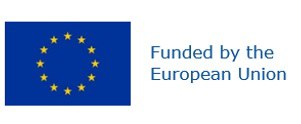AIDA4Edge - Twinning for Excellence in Adaptive Edge AI
The main goal of AIDA4Edge is to strengthen networking between the Coordinator (FEEUNI) and the advanced partners (IHP, UoM and UNIFE) from European institutions in order to enable FEEUNI to reach scientific and innovation excellence in the field of Edge AI (Artificial Intelligence). Fundamental and thriving research will tackle the issue of bringing complex AI algorithms to Edge devices with resource constrains in terms of memory, processing power, energy consumption and latency. To meet this challenge, the synergy of expertise of all partners will be exploited and an adaptive AI-enabled edge computing pipeline will be developed. UNIFE will contribute with the expertise in the field of optimization and tuning hyperparameters of ANN (Artificial Neural Network) utilizing probabilistic logic. IHP will be in charge of exploiting the advantages brought by multi-core AI accelerators in terms of power consumption and reliability. UoM will leverage the synergies between bio-inspired SNNs (Spiking Neural Networks) and ANNs, to maintain the accuracy of conventional ANNs and to exploit the input data sparsity through the asynchronous computational capabilities of bio-inspired SNNs. FEEUNI will bring the expertise in quantization, important for ANN compression and resource saving. By the knowledge transfer and the exchange of the best practice, networking will provide FEEUNI all knowledge it lacks. It will enable FEEUNI not only to empower research capacity, but also to become the center of excellence in the field of Edge AI and to raise the reputation and enhance research management capacities and administrative skills. This will strengthen and encourage FEEUNI team (with a lot of women involved) to apply to variety of new research calls and to boost progress in science and economy in Serbia and beyond, reducing the imbalance of research capabilities between developed European countries and Serbia.
 |
Funded by the European Union. Views and opinions expressed are however those of the author(s) only and do not necessarily reflect those of the European Union or European Research Executive Agency (REA). Neither the European Union nor the granting authority can be held responsible for them |
Project details
Scientific responsability: Riccardo Zese
Funding source: HORIZON EUROPE
Call: HORIZON-WIDERA-2023-ACCESS-02
Start date: 01/10/2024 - end date: 30/09/2027
EU contribution: 1.198.362,50 €
EU contribution to UniFe: 293.437,50 €
Participants
- University of Nis - Faculty of Electronic Engineering, Serbia - Coordinator
- IHP GMBH - Innovations for High Performance Microelectronics, Germany
- The University of Manchester, United Kingdom
- Universita degli Studi di Ferrara, Italy
